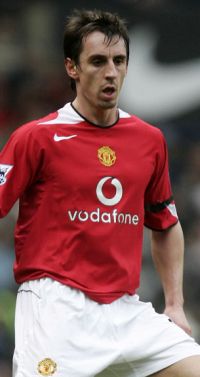Famous names, all of them, in the annals of Burnley Football Club. Legends, likely to feature on any of those lists of all time greats which get compiled.
Wonderful players, yet that alone does not account for their revered status. There have been remarkable talents who didn’t attain such standing, and many less illustrious names who did, or at least came close to entering those ranks. There is something else which is required in the vast majority of cases. Time.
All those players – and others besides – are members of a particular club. The Four Hundred Club. Four hundred appearances, in all competitions, in the Claret and Blue of Burnley. Inevitably, the longer they stayed, the more intertwined with the fabric of the club they became, the deeper their relationship with those who watched them.
Yet time is a scarce commodity in an increasingly transient game. Perhaps it is not even a valued one. Players and managers come and go in barely the blink of an eye. This summer could see
The age of the one-club professional is now almost certainly dead. Partly, this is because players, operating in a free market and represented by agents out to get what they can, are more aware of their worth and more prepared to move on frequently in order to better themselves. Partly, it is because the clubs – and indeed, supporters - themselves have become fixed on short-term goals.
Only at the biggest clubs, and then perhaps not even there as managers come and go more frequently, are players likely to become part of the furniture in the future. Lower down the leagues, as short-term contracts and long-term loans account for an increasingly large proportions of any squad, it will become even rarer.
This is not to mythologize a bygone era of loyalty in football. Fair play to the players who want to better themselves. But the game has certainly lost something in substituting regular revolution for evolution and stability. It is no coincidence that, alongside those names above, the likes of Glen Little and Steve Davis left the most indelible mark upon the club in the modern era.
The rootlessness of the modern game undoubtedly contributes to the lack of folk heroes at many clubs today. This season’s
It’s a pet theory of mine that this is a contributory factor to the increasing ambivalence of many fans to their club. Especially amongst young fans, for whom having icons to worship is a fundamental part of the appeal of football. It creates a perception of common purpose and mutual affection, of familiarity and security, which players simply passing through cannot match.
This isn’t just a sentimental argument, but one based in the practicalities of football too. The best teams are not thrown together in a couple of frenetic years, but emerge gradually, around a nucleus of long established players. The most successful team in the land also have arguably more stalwarts than any other.
The likes of Roy Keane, Ryan Giggs, Scholes, the Nevilles et al have sustained Manchester United through a decade of success. You could argue, perhaps, that Sir Alex Ferguson kept that team together too long, and didn’t refresh it early enough. Perhaps. But it is undoubtedly the case that maintaining that core of players steeped in team’s style and culture was central to their success, and remains so.
But at at other clubs, such length of service has become an alien concept. Matt Le Tissier spent his career at
It is interesting that on a different yet not entirely separate issue, UEFA has decided to act. Proposals to introduce quotas guaranteeing the presence of homegrown players in European club sides are in large part a recognition that clubs lack identity. It is precisely this problem – that fans cannot relate to the players pulling on the jersey as once they could – which results from the short-termism rife within football.
Simply being able to get the chequebook out and sign players as and when required, has unquestionably contributed to this revolving door of talent. Players with any ambition understandably feel a need to keep on climbing the greasy pole, perhaps even taking short-term gambles in order to try and break into the squad of one of the few teams with a realistic chance of success. UEFA hopes that by demanding clubs nurture their own talent, it will indirectly check the power of the few and level the competitive playing field.
There are other problems which need addressing, particularly the power of agents within the modern game. In particular, the ability of agents to agitate for transfers motivated only by a selfish desire to make a few quid for themselves, needs urgent confrontation. Limit agents to responsible dealings, and a great many superfluous transfers could be avoided.
Of course, if clubs were better able to compete on an even playing field because money were more equally distributed, then the need for such thinking would diminish further. The financial motivation for players to move on would be diluted, and the ability of clubs to retain players in the face of relegation enhanced. But all of this is most unlikely. It would require a degree of foresight by those controlling the game out of keeping with their previous records.
Why, the dear old FA, at the behest of the likes of David Dein, will be opposing those unusually enlightened reforms from UEFA, on the basis that they will spoil the quality of the product. In their utopian view of football today, the world is perfect, and any meddling is not to be welcomed. They cannot see the real problems that exist just beyond the ends of their noses, their arrogance as breathtaking as it is misguided.
